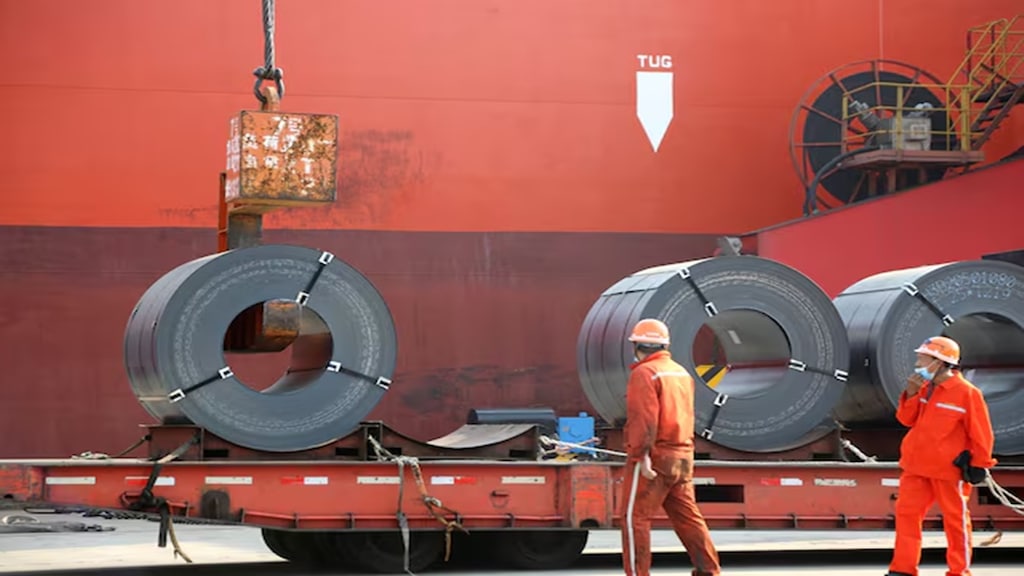The steel ministry has firmed up a plan to bring all steel grades consumed in the country – whether domestically manufactured or imported – under strict quality control norms, official sources said. The move is with the twin objectives of improving the quality of infrastructure and assorted hardware manufactured in the country, and putting curbs on cheap imports that hit domestic producers across the steel value chain.
The plan, once implemented, will bring 1,000 more grades of steel under the quality control order (QCO), in addition to 1,376 items currently under the norms.
The Bureau of Indian Standards (BIS) formulates standards for steel. The steel ministry issues QCO, which mandates that only quality steel conforming to the relevant BIS standard notified under QCO is produced in the country and imported from outside. Steel grades not yet covered by BIS standards are imported with a No Objection Certificate (NOC) from the steel ministry.
A steel ministry official said, “We are trying that in the next one year, we can bring all the grades which are there, under BIS standards, so that poor quality steel does not get imported. It works both ways – to regulate imports as well as to ensure the quality of the products. So that is the one non-tariff barrier we are working on. These are also part of the measures we are taking to ensure our industry remains competitive.”
Ritabrata Ghosh, vice president and sector head, corporate sector ratings, ICRA said, “If the government decides to broad-base the coverage of steel grades in the Quality Control order, in my view, it can act as a temporary speed breaker for bringing down imports from the prevailing run-rate of about one million tonne per month.”
Ghosh said the move’s impact could wither away with time, as importers could get the necessary BIS certifications in a few months. So, the durability of such non-tariff barriers remains to be seen.
Meanwhile, at the end of November, domestic HRC (hot-rolled coil) prices were trading at a significant premium of $12-16/tonne compared to the landed costs of imports from China and Japan.
Unbridled imports are diminishing India’s steel sector’s competitiveness, which, in turn, is weakening its investment capability. Roughly estimated at a one-billion-dollar investment required to create one million tonne of steel capacity, the Indian steel sector requires a whopping Rs 10 lakh crore investment in the next five-six years to reach the targeted 300 MT capacity by 2030-31 from around 180 MT now. This is why it is vital for the government to keep the domestic industry competitive and ensure that they get remunerative prices to invest in capacity.
However, from being a net exporter, India became a net importer of steel last fiscal year. The import-export gap is set to widen further in the current fiscal year, hitting an eight-year high of 11 million tonnes. The lion’s share – around 65% of the steel- comes from countries with which India has free trade agreements (FTAs), such as Japan and Korea. These countries send products to India with nil customs duty. For others, a 7.5% customs duty is levied.
Apart from sending steel directly to India, China is exporting to India through Vietnam to bypass the extant BCD. Going one step ahead, China is creating capacities in Vietnam and other countries, with India having FTAs to ensure free flow in the future as well. On the other hand, India’s exports are getting squeezed and might be at a three-year low of 4.9 MT in the current fiscal, ICRA estimates.
The steel ministry is pursuing various tariff and non-tariff barriers to rein in rising imports. It has already sent a tariff barrier proposal to its finance counterpart to double the BCD on steel imports to 15%, which is under consideration now. Of the two other tariff barriers—safeguard duty and anti-dumping duty—the Directorate General of Trade Remedies (DGTR) has already started an investigation against Vietnam at the industry's request. The steel industry is likely to seek anti-dumping duty against imports from other countries as well.
Similarly, the DGTR is also examining the industry’s proposal to levy a 25% safeguard duty on imports of certain grades of steel products into the country, regardless of their origin.





